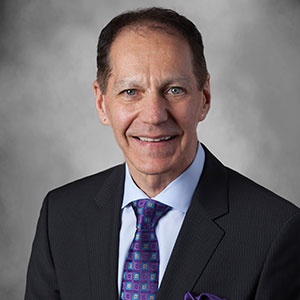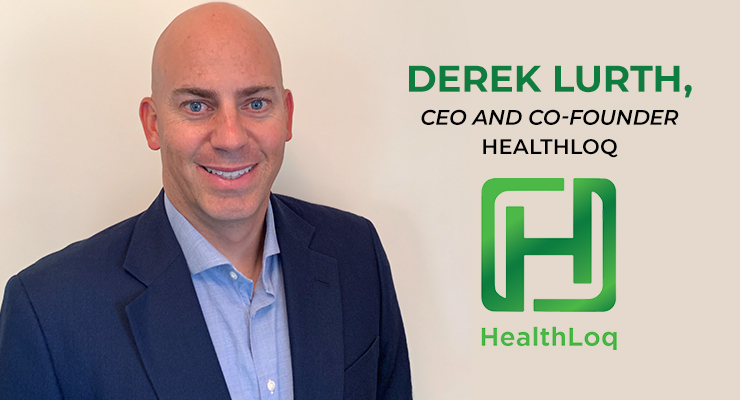Health E-Insights
Blockchain Technology Platform Designed to Confirm Supplement Quality in Wake of Counterfeiting
HealthLOQ CEO and Co-Founder Derek Lurth discusses how authentication protocol can help industry more proactively self-regulate.

By: Sheldon Baker

Derek Lurth is the CEO and co-founder of HealthLOQ, a company that uses the latest digital technologies to bring evidence-based confidence to the natural products industry and consumers. With over 20 years of experience in accounting, auditing, and financial leadership, Lurth has held key executive roles in both private and publicly traded companies in the natural products, pharmaceutical, and home construction industries. Having started his career as a certified public accountant and auditor at Deloitte, he has been able to leverage his knowledge and experience in a unique way to help develop game-changing technology attestation systems.
Health E-Insights (HEI): How did HealthLOQ get its start?
Lurth: HealthLOQ got its start in 2018 when I was chief financial officer of a large distributor of HCP supplement brands. I hired my future co-founders to perform a proof-of-concept project to test whether blockchain could be successfully used to increase the transparency of the sourcing and quality of our products to our customers, as well as attribute health effects of products to specific batches/lots that are traceable to their ultimate sources.
The POC demonstrated such promise that I left my former company and my co-founders and I started HealthLOQ with the goal of elevating trust in the natural products industry through the use of the latest digital technologies. My background as an auditor, the experience of my co-founders—one of whom is a university supply chain professor and the other is an ERP implementation expert—gave us the perfect combination of skills to bring HealthLOQ to life.
HEI: Counterfeiting supplements is a serious issue. How is your company addressing the problem? What role do you take?
Lurth: One of the major ways that the sale of counterfeit supplements is enabled is through the providing of falsified or tampered documentation to retailers. Our system utilizes ZKP (zero knowledge proof) and blockchain technologies to add real teeth to the supplier product onboarding process of retailers.
Essentially, we make it impossible for a product to get approved for sale unless it has a real, authentic certificate of analysis from an actual, qualified (e.g. ISO or other certification) laboratory, an actual, authorized reseller letter, and it must be submitted from a legitimate, authorized IP address.
HEI: What can be done to correct the mislabeled supplements issue?
Lurth: Consumers have a right to know that what they are holding in their hand is what they think it is—the actual contents of the bottle should match what the label says, nothing more, nothing less. Although we need to continue to push regulators to enforce existing laws and standards, we have seen that crying and complaining to them and waiting for them to fix the mislabeled supplements issue is not an effective path.
Our industry needs to police itself and retailers must continue to step into the role of regulators. By requiring evidence of testing from a qualified laboratory on every batch/lot of product sold, retailers will sell better, more efficacious products to consumers while at the same time reducing their risk of something going horribly wrong and exposing themselves to massive losses.
In the past, a requirement for lab testing on every batch of product may have been labor intensive to enforce and easy for bad actors to get around, but HealthLOQ verification technology automates this process and is 100% effective. Despite all the uncertainty in the marketplace caused by mislabeled supplements, our technology can provide retailers and consumers with evidence-based confidence that the product is what it says it is.
HEI: What’s your thought about how the supplement industry is responding to such a serious issue?
Lurth: In general, the supplement industry is much too reactive, as opposed to proactive, when it comes to dealing with this issue. Companies and regulatory agencies play whack-a-mole and try to go after bad actors when a problem surfaces, but by then the damage has been done and any action taken is too little, too late.
The industry needs to put more of an emphasis on preventive controls, stopping problems before they occur, instead of detective controls, trying to find the problems after they have already happened.
By implementing a standardized, approved quality process, one with real teeth that can discern between the good and bad actors for the industry, we can significantly improve the quality and safety of the supplements coming to market.
There are industry trade groups, such as the Global Retailer and Manufacturer Alliance (GRMA), that are actively working on standards that will improve the industry for retailers, legitimate manufacturers, and consumers. GRMA has been working on its Dietary Supplement Product Integrity Program for years and it is almost ready to be rolled out. It will incorporate HealthLOQ authentication technology and will represent a significant milestone of self-regulation for the industry.
HEI: What is Amazon and other online supplement suppliers doing in light of this matter?
Lurth: They are doing what they can with the resources they have, but the sheer volume of existing and new products, combined with the increasing sophistication of bad actors and the ease with which electronic documentation can be faked or tampered with, make it extremely difficult for them to prevent all of the bad products from slipping through the cracks.
Many of the online supplement suppliers, including Amazon, are working collaboratively on projects, such as the aforementioned GRMA Dietary Supplement Product Integrity Program, that will improve the overall quality and safety of products in our industry. In addition, our HealthLOQ authentication software was specifically designed to deal with the problem of untrustworthy documentation and does it in a way that is 100% effective, automated, easy to implement, and saves money.
HEI: How much money is the supplement industry losing due to online sales crime?
Lurth: The very nature of online sales crime with its intent to deceive, mislead, and get away with it, makes this number impossible to nail down with any degree of certainty. In addition, the victims of online sales crime, if they are even aware of it, may not want it made public for fear of damage to brand reputation or other negative consequences.
However, in 2017 the World Health Organization (WHO) estimated that 10.5% of the medications worldwide are either subpar or fake. Given the subsequent COVID-19 pandemic, the relatively tougher regulation on pharmaceuticals vs. nutraceuticals, and the high rates of adulterated product found in independent testing of supplements bought online in recent years, it is highly possible that the supplement industry is losing greater than 10.5% of its revenue due to online sales crime.
HEI: Which companies are stepping up to the plate in an effort to make changes? What are they doing?
Lurth: There are some brands, the ones with a lot of R&D behind their products, that have robust QA/QC programs, and stand by the authenticity of their ingredients and are using increased transparency as a way to differentiate themselves from the sea of sameness that plagues much of the industry. HealthLOQ has a blockchain-based platform that helps accomplish this and lets the good citizens of the industry market truth instead of just telling a story without any substantiation, like so many companies do.
There are other companies, such as Alkemist Labs, a third-party testing laboratory, that are champions of transparency and employ cutting-edge programs and technologies to make a real difference in the industry. A tamperproof certificate of analysis from Alkemist Labs is a digital passport that proves to retailers and consumers alike that a product is trustworthy and authentic.
HEI: Is the food/beverage and cosmetics industries affected by counterfeited products as well?
Lurth: Yes, the food and beverage and cosmetics industries are highly affected by counterfeited products as well. All major cosmetics companies are highly counterfeited. Have you seen the Netflix documentary “Broken” where the girl had her lips glued shut from fake Kylie Jenner Koko lipstick?
One study from Statista (published by Tuba Sabanoglu) estimates the annual problem for cosmetics to be $5 billion. The recent documentaries “Food Fraud: An Organized Crime,” “Rotten,” “Counterfeit Culture,” and “Poisoned” all explore issues facing the food and beverage industries.
The growth in e-commerce is fueling counterfeit products. The Organization for Economic Cooperation and Development (OECD) has seen at least 200% increase in counterfeits traded internationally since 2005.
HEI: Can HealthLOQ take a leadership role in educating the consumer about the good, bad, and ugly of online supplement sales?
Lurth: Absolutely. We plan to take a leadership role here. Step one is providing consumers with the ability to validate a product’s authenticity by verifying the testing results and documentation provided to the retailers either physical or online. We created technology that allows the consumer and retailers to quickly validate these documents.
HEI: In turn, what can consumers do?
Lurth: Consumers can start by simply being vigilant. The WHO estimates that there are over 1 million deaths each year from counterfeit products. We, as consumers, have to demand more transparency and visibility to where the ingredients are coming from and who is supplying them. HealthLOQ can provide this for legitimate brands who are willing to show the information, and we can do it at the batch level.
HealthLOQ has the capability to verify the legitimacy of relatively few products today, but the number is quickly expanding. We just onboarded a lab that has tested almost 300,000 products. So our ability to validate authentic products or expose an inauthentic product is quickly increasing.
HEI: What might keep you up at night thinking about these supplement issues?
Lurth: Although sometimes it seems like the industry is teetering on a knife’s edge because of the actions of bad actors, we’re excited about the technologies we’re developing to help combat the issues of counterfeit, mislabeled, or adulterated products. These problems do worry us but we’re very encouraged as we find companies each day that want to help in the fight.
Sheldon Baker is a full-time freelance writer who covers health and wellness and other fun topics for Nutraceuticals World, Rodman Media, and other publications. He’s based in Northern California near Yosemite National Park, and enjoys exploring worldwide destinations, especially New York City, Mumbai, India, and Sydney, AU. He’s also happy to hang out at home with his wife and the many young foster children in their care. Follow him on Twitter @SCB3128 or send him an email at sbaker@bakerdillon.com.


